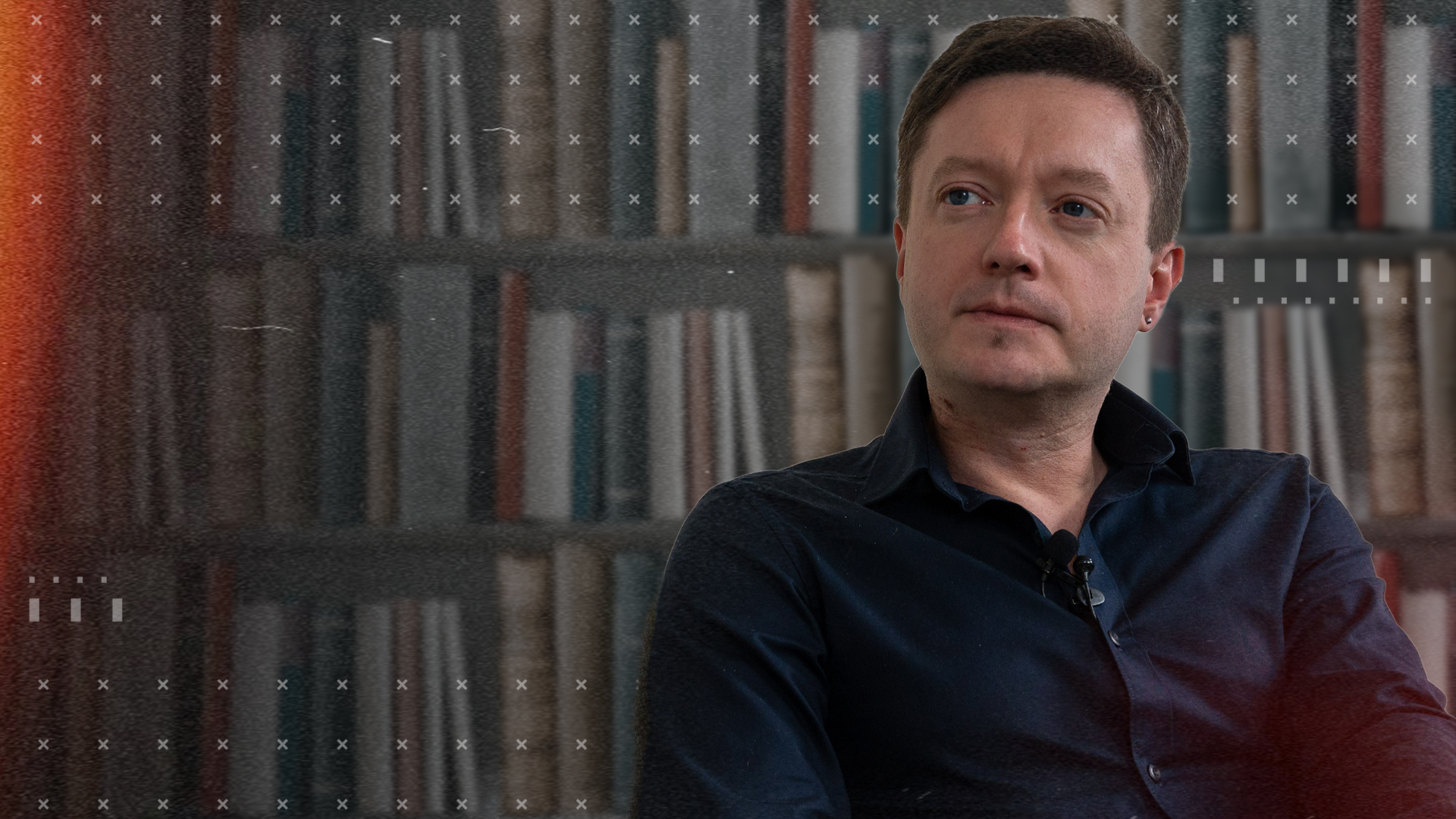
[For urgent updates please follow Ukrainian Freedom News on Telegram]
What are poets doing during the war?
Sometimes, they write poems, but in reality – not often. I envy those of my fellow poets who have retained the ability to write poems, to depart from reality for a few steps. In order to write a poem or an artistic text, you need to see everything more or less as a whole. But the situation of war is one that is dangerous to see in a larger scale, because it then looks even more hopeless than the small plot on which you are working. It is much more practical to work on your «small garden» than to try to step back and think about the situation in general, although someone still has to do that.
At the beginning of the full-scale invasion, I wrote two poems just because I was asked to do so. In my head, the mechanism that usually started when I wrote artistic texts is now unfunctional. I can write documentary texts, journalism sometimes, but I can’t turn on fantasy or generalization. It seems to me that at this moment, it is worth doing what one can do best on his place.
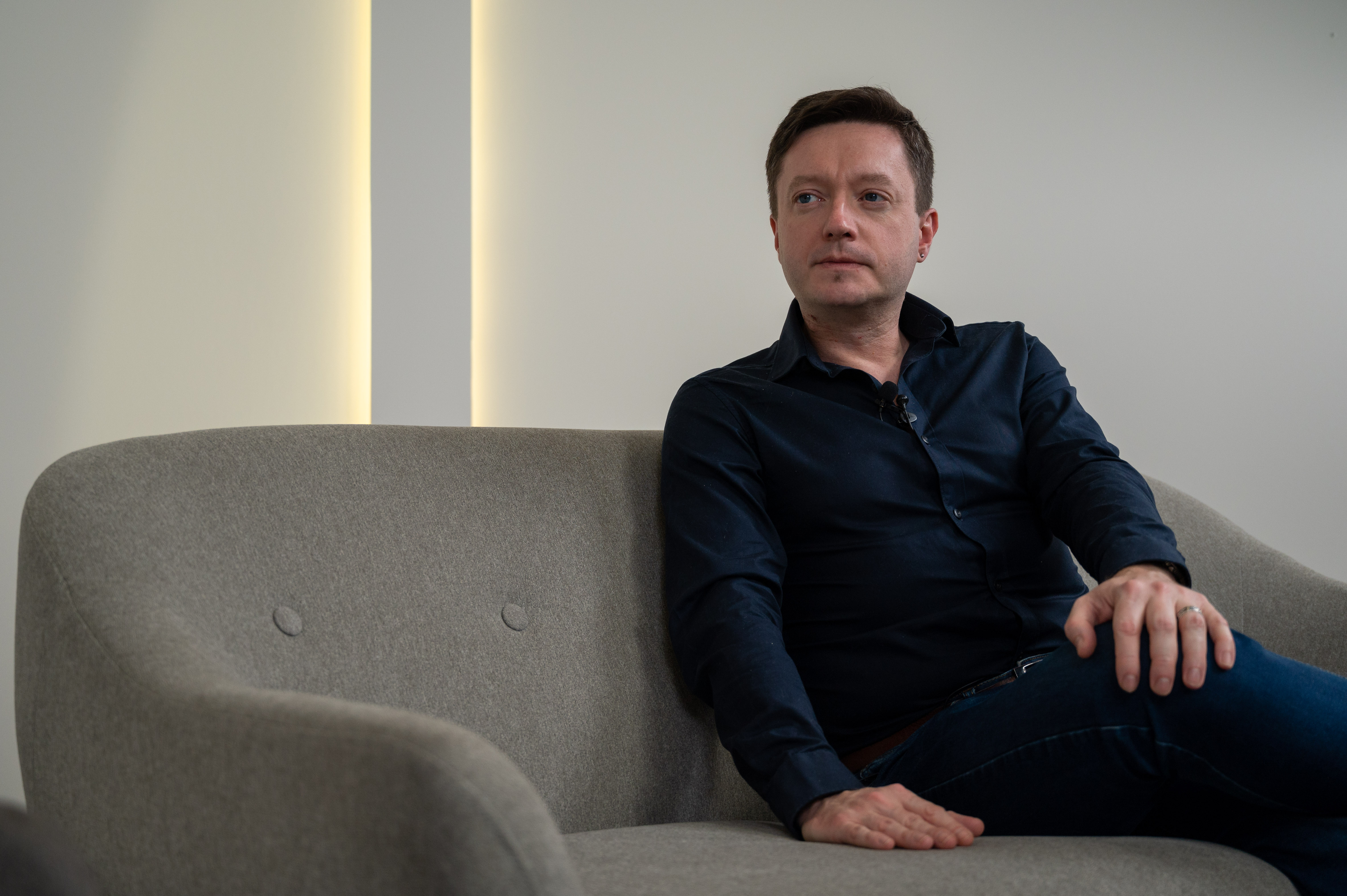
Recently, a Ukrainian public organization «Center for Civil Liberties» shared the Nobel Peace Prize together with a Belarusian dissident and Russians, who, as their description says, are representatives of civil society. Is there actually a civil society in Russia, or is it rather a community? Is this community well-known and broad enough to really deserve such an award?
Society and community are words with the same root in the Ukrainian language, but different in essence. The basis of society is the systematic interaction of all its layers, while the community can be something closed, suspended in a vacuum, which has separate channels of interaction with the environment. That is, there can be a dissident community, but it can be a void. That is exactly what we see in Russia.
When we say that Ukrainians received the Nobel Peace Prize together with Belarusians and Russians, then, on the one hand, we state it right. To all those who do not delve into the peculiarities of the environments and the differences between those three nominees who received the Nobel Prize, it looks like it was given to representatives of three peoples. When I read the motivation of the Nobel Committee, which talks about the brotherhood of peoples... I don’t know how consciously or unconsciously it is, how blind or deaf they are to use this absolutely Soviet, even pre-Soviet clichéd phrase, a «reinforced concrete» element of propaganda. Even when these peoples are called in the Soviet order – Russia, Ukraine, Belarus, that is, three Slavic peoples, this «brotherhood» creates the effect of mechanically putting us into one «box» so that we must somehow reconcile with each other.
However, when we talk about this nomination among ourselves, in the middle of Ukrainian society, we should not forget who these prize winners are: Russian «Memorial» and the Belarusian dissident Ales Belyatskyi. These are actually representatives of that completely oppositional and aggressively excluded element of the Belarusian and Russian societies. In other words, this is something that’s not officially present in Russia and Belarus. «Memorial» was officially liquidated even before they became laureates of the award. They are officially not in Russia, and we must remember this. But one should not forget that, probably, the goal pursued by the Nobel Committee is somewhat specific and does not quite correspond to how we now want to think about ourselves.
The fact is that in many circles in the West, Russian-Ukrainian relations are not observed from the colonial-imperial perspective. That is, people there are unaware of why we cannot be placed next to each other. When it is done mechanically, so that the Russians and Ukrainians somehow reconcile themselves, it automatically reproduces these colonial relations.
Has Russia ever been a useful metropolis for us in Ukraine and should we at all consider ourselves the Russia’s colony?
Here is an interesting question that concerns the political and cultural metropolis. Politically, Moscow could still be a metropolis and a boot to hold its colonies, preventing them from rising. Instead, culturally, Russia drew everything from them, absorbed everything that came from the colonies, like a sponge, without being able to produce anything by itself. This probably cannot be said about most other empires, like the British empire. After all, England was and remains a very active producer of culture, though not without absorbing some cultural resources from the colonies. This is how empires work.
At the beginning of the 20th century, the provinces in Little Russia [the name of Ukrainian lands in the Russian empire] had a higher average standard of living and education than in the Empire itself. I’m not talking about the western lands that were part of Austria-Hungary, there the gap was huge. But according to Yaroslav Hrytsak’s research, they weren’t at the highest level in the Habsburg Empire.
Read also: «Wars begin due to the lack of nurture,» – Solomiya Chubai
The Russian Empire was very specific in this sense. There was a kind of «black hole» inside of it that absorbed everything. But in return, it did not give anything except darkness, the blackness that it produced.
Except for the «great Russian culture»...
...which is actually another «big bubble». Recently, there was an interesting international discussion with the participation of very different circles. Some non-Ukrainian participants, perhaps the British, voiced the opinion: if the great Russian culture really wants to be great, then it must cope with authoritarianism it born and with the revived, now restored personality cult. If it is great and wants to claim this status, it must cope with the monster it gave birth to or caused to appear.
Do you see a prevailing narrative of nihilism in Russian culture? There was no concept of human dignity, and any literary description or image where this dignity triumphs would seem implausible. Hence, the only way out for the writer was to glorify this nihilism, the futility of all efforts. In Dostoevsky, Turgenev, and even Chekhov, everything is accompanied by hopelessness.
When there is no hope, any light at the end of life’s tunnel – then the loss of any landmarks begins. You are in complete darkness and no longer care where you are going. That is where Raskolnikov’s paradox comes from. It may look like a transgression, a certain gesture, an act, but in fact it isn’t. What Dostoevsky writes about is not heroism, not some rank – he [the hero] does not rise above himself. This is simply a person who is in a situation of complete loss of orientation, and it does not matter what he does, there is no yardstick for him, because he does not see the point of exit and the point to which he is heading. This is sailing without a rudder and sails. It seems to me that this is the biggest problem – the «breadth of the Russian soul», as they call it. This is the confusion in which man and society are constantly residing, the lack of any tactical and strategic goal, life here and now. This permissiveness and absolute intemperance in everything, starting with words and ending with how a person can descend to such terrible tortures which they use. How can the human psyche produce such a thing and continue to live with it? In fact, it is the absence of a sense of the forbidden.
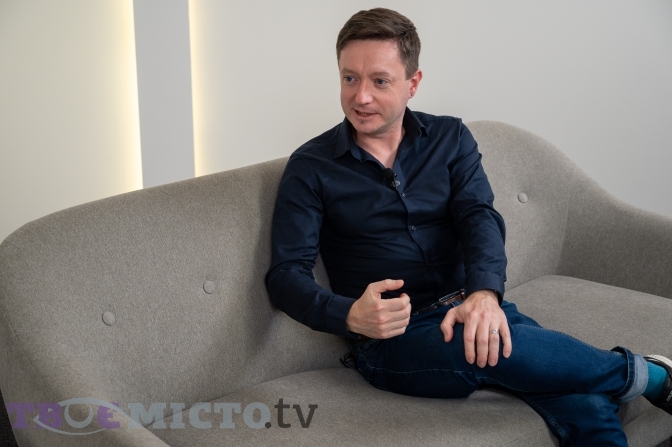
Psychologist Jordan Peterson says that real evil is when a person hurts someone and enjoys it.
It seems to me that this is a chaotic revenge on someone or something, an opportunity to force a feeling of inferiority on someone who lives better. Chaotic revenge, it seems to me, is one of the possible definitions of what the Russian army is doing in Ukraine.
Let’s look at the western intelligentsia. Sartre supported the Soviet government, though while being here, he had the opportunity to see what was happening.
He didn’t want to look. If we want to understand the left-wing Western intelligentsia a little better, in particular the French one which is the strongest in its country, then it is worth reading authors from Central and Eastern Europe. In particular, the same Miloš, who at one time in some texts dissected the left-wing pro-Soviet French intellectual elite. He almost had a personal conflict with Sartre, and the text «The Enslaved Mind» had a very difficult time making its way in France [«The Enslaved Mind» is a collection of essays from 1953 in which Czeslaw Milosz, who escaped from the communist regime and found political asylum in France, analyzes the behavior and fate of intellectuals in a totalitarian society]. On the contrary, almost immediately after being written, this text was published in an English translation in the USA and spread like butter on bread. It was the time of the Cold War. But in France, major publishing houses, such as Gallimard, where Sartre played his first violin, did not want to publish this text. And it seems to me that to a large extent, everything has remained the same now, that everything isn’t so clear. That is, «if we condemn Putin, let’s at least not condemn Russian culture. We have hope for it. It has to save the world.» I had to hear more than once that Russian culture now allegedly has a mission of global opportunity. Because who or what else, if not Russian culture, should now save the world from disaster, they ask.
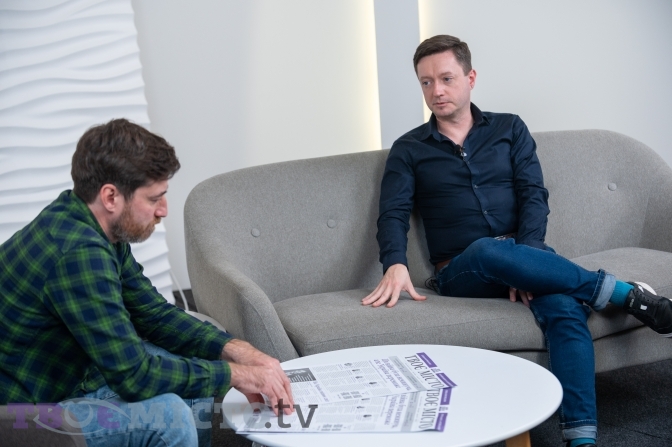
This is some kind of perverted logic. Why don’t they see what we see: nihilism, abyss, chaos, fascination with the cult of death?
I will say this: they [the French] were never a colony, but on the contrary – a metropolis. They have different optics. With whom would we theoretically get along the easiest? I will leave aside the satellites of the Soviet Union – Poland, Czechoslovakia, because this is a separate topic, or the Baltic countries, which were the last to join and were the least affected by this pressure, and with whom it is easiest for us to get along. Or Finland, which at one time was also threatened, was in a very similar situation to us. But if we are talking about the Global South and all these colonies, with which it would be easy for us to get along in theory, then their anti-Western bias is activated here. That is, it turns on «yes, we are colonies, we understand that you also interpret your history in the categories of colonizer and colonized, but you are supported by the United States.» Especially when talking to representatives of South American countries, who consider the United States to be a historical enemy. Because of this, we constantly stumble.
Perhaps this war will be the impetus for a rethinking of everything we know about left and right thought in the world? Maybe there should be more common sense, something centrist in the world which, on the eve of the war, was torn apart by the radicalization and populist uprising of the last 10-20 years?
I would like your optimism. I don’t have it regarding some balance of opinions and more centrism that is to be in the world. In fact, centrism is excellent, everything is best somewhere in the middle. We seem to know it, but these capsules of extreme radicalism exist, albeit due to the fact that they have practically no connection with reality. Fight with it is impossible, no matter what arguments you use. They will always break against the «reinforced concrete» counterargument of your opponents, because he/she considers it absolutely unconditional. If for a person, this is a «float» that keeps his opinion, then he is not ready to give it up.
Read also: «We wouldn’t perform Chekhov,» – a school theatre play that’s raising funds for Ukrainian aviation
Listening to your question, I remembered the story shared by Jacek Trznadel, a Polish literary critic and intellectual who wrote a very interesting book of interviews with Polish writers who collaborated with the Stalinist regime in the 1950s. To this edition, he added an afterword in which he told about his conversation with a rebellious French student on the burning streets of Paris among the student barricades in 1968. I might not pass this episode precisely. So, a student asks Jacek where he is from. «I’m from Poland,» he replies. «Oh, how good you are, you are a communist country. How I envy you, I want us to get into such a system as soon as possible,» – the student says. Listening to this, Jacek says: «But if you lived in Poland, you wouldn’t be able to protest now, go out on the streets, proclaim slogans familiar to you.» The student looked at him in surprise and answered: «Well, if we lived under communism, we wouldn’t have to do this.» That is, these radical utopias exist as spherical bodies in a vacuum, unrelated to reality. And you have to give up hope that they will disappear somewhere.
War is a kind of inoculation that lasts for one or two generations.
You just took it off my tongue, that’s exactly what I wanted to say. In the long run, maybe there won’t be any global solutions. There was already a Caribbean crisis, when humanity was on the brink of a nuclear disaster. I hope that now, we will avoid a fatal development of events. For two generations, this will obviously affect the distribution of power in the world, but then it can turn back.
You applied for the position of secretary of the International PEN but didn’t pass, right?
Yes, I was not elected. To be honest, it was a kind of challenge for me. Now someone is mastering HIMARS, and for me this move was also kind of a shot with HIMARS.
The International PEN Club is the largest writing organization in the world, which unites more than 150 centers. There are many centers formed by ethnic groups and communities that do not have their own state, such as the Uyghur PEN or the Quechua PEN, which unites the indigenous peoples of Latin America. It has its own logic, not superimposed on the political map of the world, but it is definitely the largest and most influential global writers’ organization. This is not just a Union of Writers, where we meet, drink to each other’s health, praise talent and so on. This organization aims to fight for the basic conditions of the writer’s existence. This is freedom of speech, freedom of self-expression and access to true information, opposition to censorship in any form.
If you became a secretary, what would it give you?
This is actually an opportunity to establish interaction between different centers, to influence the determination of priorities in the organization, which region or problem is more emphasized in the activities of the International PEN. At certain moments, individual regions are updated. The 88th congress was held under the slogan of supporting Ukraine in the situation of Russian aggression, a very important resolution was adopted in support of Ukraine, the entire visual was in the colors of the Ukrainian flag. Other important points are the situation in Myanmar, Rwanda and for many years in China. A very significant event that happened at this congress was the freezing of the Russian PEN. This means that their activity within the International PEN is suspended, they do not have the right to participate in international events organized by the organisation and cannot use PEN bonuses. They can only exist in Russia, as they are registered there, but excluded from international activities for a year. And if during this time, they do not report in any form that they change their attitude to Russian aggression against Ukraine, if they do not stop supporting Putin’s policy (which there is practically no hope for) – they will be expelled from the organization and cease to appear as a PEN center.
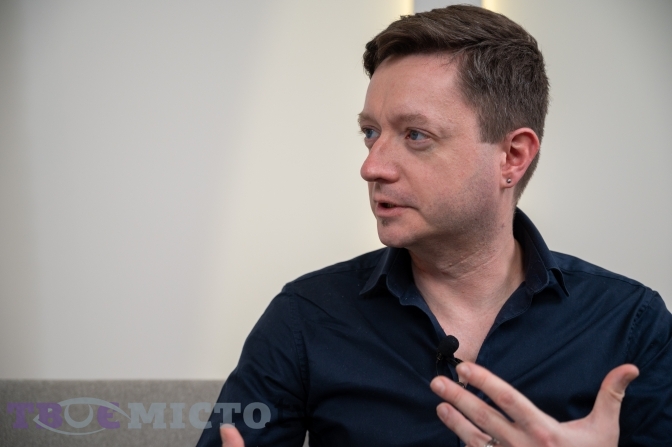
So was it an attempt to talk to influential writers? I read Stephen King on Twitter, who I don’t really like as a writer, but love him as a contributor. Especially now that he’s calling the things with their names. This is an example of how a national writer can be an important voice.
Here it is very important that the activity of PEN is based on the charter adopted 100 years ago. The organization was founded in 1921. One of the points of this charter is that the writer must responsibly and beneficially use his authority, the opportunity to speak with a large number of people and express his position, thoughts, using all the means that society gives him. Responsibility is very important here.
Read also: «We’re losing our territory in language,» – translator and linguist Andrii Sodomora
More than 300 delegates from more than 100 countries gathered at the last congress: from South Africa to Sweden, Norway and the countries of Southeast Asia. I decided to apply for the position of secretary, not having high hopes that I would be elected, because PEN is an old and quite conservative organization, and I am a new person in International PEN. And even the fact that they opened doors for me and gave me opportunities for cooperation at the level of the board is very important. This is the message I wanted to convey: don’t think that Russian culture is innocent, and that it always wanted to do everything for the best puroses but didn’t succeed. Or that Putin’s coming to power is a factor that Russian culture could not influence. I said that everything is not really like that, that literature and culture can harm. That in many texts of the Russian literature, this aggression is directly or indirectly described, because it was a whole historical fiction. I will not mention names, I unconsciously erased them from my memory. They wrote hundreds of pages with their painful fantasies about the destruction of Ukraine. And the culture didn’t just resist it, it didn’t just enable it – the Russian culture almost wrote the script for this invasion... I doubt that any of these writers will be prosecuted in an international tribunal, but it’s something to ponder.
How do you feel about cancellation culture? Is it possible and should we abolish it? I believe that all Ukrainians are traumatized by the Soviet in one way or another. I haven’t watched Russian movies for a long time, I haven’t listened to Russian music, but sometimes it pops into my head. That doesn’t make me a «killer», but there are narratives out there that you mentioned: «hit, kill, steal.» They are described at the level of intellectual prose.
This is asked very often. At the same congress, the question arose as to how we plan to coexist with Russian culture. After all, it will still exist, and we cannot get away from it. It is huge. Although I would not overestimate, because it’s puffed up more.
Questions about the cancellation of Russian culture arise very often, because, they say, how is it possible? Is this discrimination based on national or ethnic grounds? Where do we draw the boundaries of Russian culture? Of course, there are many questions about how we define the criteria of Russian culture. Who is the Russian writer with whom we do not want to sit at the same table? A Russian citizen who writes in Russian? And if he does not write in Russian, is he not a citizen at all?
But there are Ukrainian writers who can write in Russian or wrote in it until recently.
There are also writers of Ukrainian origin, who by certain criteria can be considered a Ukrainian writer, but this person is absolutely hostile to us. In fact, there are a lot of questions, and it seems to me that this should be treated as a kind of lockdown that we are introducing. It’s like freezing the Russian PEN. We now have to freeze Russian culture for ourselves, because we are in a state of war, we are similar to an organism fighting some very serious virus. And it must be given the opportunity to rest from something, not to give additional physical exertion. Canceling Russian culture is a kind of quarantine, freedom from the need to look for ways to interact with Russian culture, because it is not the right time. But we will win, and everything will return. The smoke will clear, and all this Russian culture will emerge from it again. And we will again be forced to look for answers to all these difficult questions.
Read also: «We have to say goodbye to disgusting and stinking Soviet past,» – historian Andrii Pavlyshyn
Now there are just a lot of things out of time. Here we are talking with you and understanding what we are inside, what war is, what this smoke means, what it means to think about the criteria for distinguishing between good and bad Russian when a missile is flying over you. It’s just not the right time, not the situation. But when a Russian from Switzerland approaches you at an international congress with the same question, and you begin to tell him about it, he looks at you with even greater wariness, because he does not understand all of this. There are things that are just very difficult to explain. Unfortunately, I have been convinced many times that our current reluctance to interact with Russian culture in a state of war, with missiles flying over our heads, is difficult to explain to someone who does not have such experience.
It’s like people who have only seen a lion or a tiger in a zoo, so they don’t always understand the people who were attacked by these animals...
I reminded myself: during one international event, I was approached by a lady who called herself a Slavologist from a Western European university. It was just after the story with the Bulgakov museum in Kyiv, when started talking about closing it. She had the following argument: our reluctance to interact with Bulgakov’s narrative is evidence of the weakness of Ukrainian culture, because a truly strong culture could include even such «difficult elements» as Bulgakov. She is aware that he had anti-Ukrainian passages, that he had a certain disdain for Ukrainian culture and language. But, in her opinion, since he was born in Kyiv, he interacted with our city. And it should be our responsibility to incorporate it into Ukrainian culture, otherwise it will remain exclusively a tool of the Russian language. And there is a certain ratio in that. I can’t say that I immediately objected. We really have to work out a way to interact with Bulgakov, but I would postpone that for a later time.
Returning to the medical metaphor. Right now, when we are seriously ill, we’re being given a vaccine against a disease. We may one day contract this illness, but the inoculation will further deplete our bodies. Hence, for now, let’s put Bulgakov «in quarantine».
Let’s leave it until the end of the war. Finally, tell us about your «Dictionary of War» project. Will it be printed?
It will be published this year by the «Vivat» publishing house. We have already signed the corresponding agreement. This book will somewhat resemble an art book, it will contain many illustrations created by the artist Nadiya Kushnir. At the beginning of 2023, the dictionary will be published in Polish and German. This is really a dictionary, each article is a definition of a word. All of them are arranged alphabetically, each has an explanation thanks to some story. These are the stories I heard from interlocutors whom I met from February 24 in Lviv at the train station, in shelters for the temporary displaced, or just on the street. These are not only refugees, but also doctors, volunteers, soldiers, activists, artists and just random people. Initially, it was a hashtag on Facebook that I used to post short stories, and then people started sending in theirs, and I decided that I would also use them in the book. That is, the dictionary has co-authors.
In total, it contains 80 stories and 78 words, because some words are connected to several stories. It is now translated into more than ten languages. Recently, I was in Batumi, where the Odesa International Literary Festival was held this year due to the war. There, for the first time, I read stories from the «Dictionary of War» live. So it is obvious that there will be a Georgian translation as well.
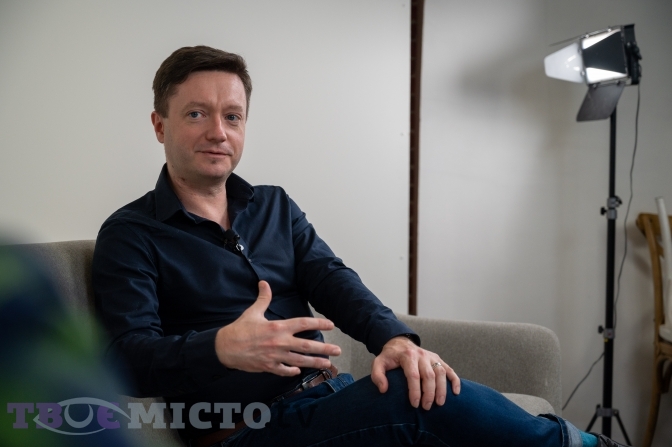
What will a European read and understand in this dictionary?
It is written in such a way that does not require any complex context. You may not know anything about what and why is happening in Ukraine, but the book will still speak to you. It seems to me that this is also important, because not everyone wants and is ready to delve into the intricacies of the Russian-Ukrainian war, but it is enough for them to read a few such stories – and they will already stand on our side. Because «Dictionary of War», like similar documentary literature, universalizes this experience. It steps over the layer of this political knowledge: there is no need to delve into the history of the conflict or whatever. In fact, people are very often lazy, but kind. I saw this many times when we talked about the «Dictionary of War».
Andrii Saichuk spoke
Text: Marichka Ilyina, translated by Vitalii Holich
Collage: Dmytro Taradayka, photo: Ivan Stanislavskyi
Full or partial republication of the text without the written consent of the editors is prohibited and considered a violation of copyright.
Follow us on Facebook and Instagram. Lviv Now is an English-language website for Lviv, Ukraine’s «tech-friendly cultural hub.» It is produced by Tvoe Misto («Your City») media-hub, which also hosts regular problem-solving public forums to benefit the city and its people.


